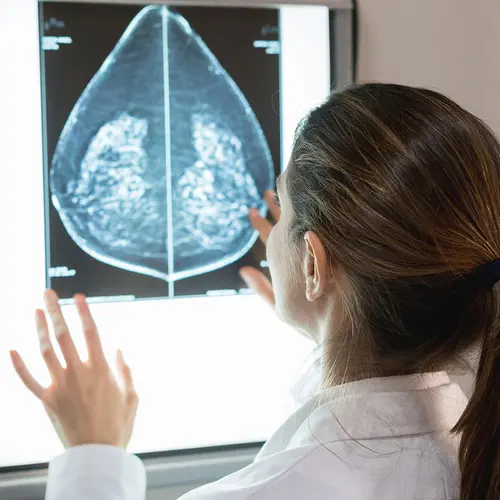July 24, 2007 -- An expert panel gave its OK for expanded use of the osteoporosis drug Evista Tuesday, telling the FDA that the drug appears effective in preventing some breast cancer.
If the agency follows the panel's advice, it would clear the way for the drug, also called raloxifene, to be legally sold as a cancer prevention agent to millions of women.
It would also position the drug as an alternative to the anti-estrogen drug tamoxifen, which has long been used to help fight breast cancer's return. In 1998, the FDA approved tamoxifen for use by women who hadn't had breast cancer but were at high risk of developing the disease.
Breast cancer is the second leading cause of cancer death among women, and about 40,500 American women will die from breast cancer in 2007, according to the American Cancer Society. About 13% of women are estimated to develop breast cancer in their lifetime, according to the National Cancer Institute.
"Postmenopausal women at high risk for invasive breast cancer, I think now should have a choice," says George Sledge, MD, a professor of medicine at Indiana University. Sledge is also a consultant for Eli Lilly & Co, the maker of Evista.
Experts voted 10-4, with one abstaining, to recommend that Lilly be allowed to market Evista's ability to cut the likelihood of breast cancer in postmenopausal women at high risk for tumors. A company study showed that raloxifene and tamoxifen are equally effective at reducing the risk of cancer in those women.
"I do believe raloxifene is effective in reducing breast cancer," says panelist Otis Brawley, MD, a professor of oncology at Emory University School of Medicine.
Close Decision
The panel voted 8 to 6, with one abstention, on whether Lilly should be allowed to promote Evista's possible cancer-fighting abilities to all postmenopausal women with osteoporosis.
Three studies filed by the company all showed that women who took Evista for up to five years developed fewer invasive breast cancers than women who took a placebo. But women who took the drug also had a higher risk of serious blood clots and fatal stroke.
An FDA analysis of the three studies was inconclusive as to whether Evista's potential benefits outweighed its risks. Agency officials said they were troubled because Lilly had not submitted any data showing whether women who take Evista actually live longer than those who don't.
"It is uncertain if the balance of benefits and risk factors for women at high risk is favorable because the magnitude of benefits is unknown," says Patricia Cortazar, MD, an FDA safety official.
Potential Risks
Several breast cancer advocacy groups opposed the approval. Carolina Hinestrosa, executive vice president of the Breast Cancer Coalition, says the government should boost efforts to find causes of breast cancer rather than approving drugs with relatively small benefits.
"Considering that most women will not develop breast cancer in their lifetimes ... taking raloxifene and tamoxifen as a risk reduction measure will be unnecessary for most," she says.
Some panelists urged the FDA to restrict the drug's marketing, particularly to keep it out of the hands of women at risk for cardiovascular disease. One panelist even suggested issuing a "black box" warning for Evista.
"There should be a strong effort to limit potential harm," says Curt D. Furburg, MD, a Wake Forest University professor of public health who voted to approve the new use for Evista.
Lilly paid $36 million in fines in 2005 after pleading guilty to illegally promoting Evista as a cancer-fighting drug. Critics said approving the new use for the drug would clear the way for the company to promote the drug with direct-to-consumer advertising.
Gwen Krivi, PhD, vice president of Lilly Research Laboratories, says the company will "continue working with the FDA to make this important option a reality for patients."
- Are you or a family member a breast cancer survivor? Get support on WebMD’s Breast Cancer: Friend to Friend message board.

